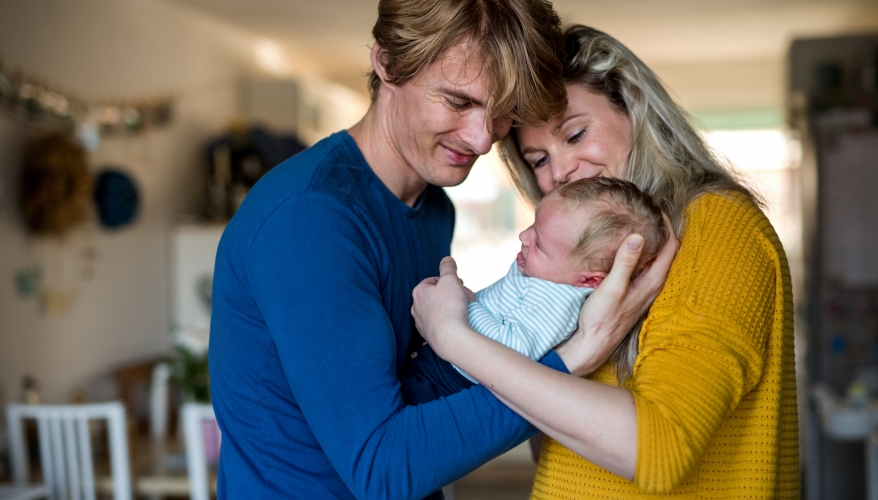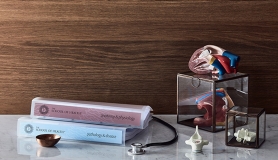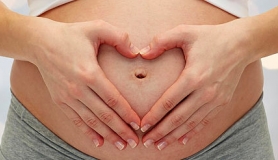“I primarily support women through their reproductive years, helping them address and heal hormonal problems like thyroid issues, acne, stress/adrenal issues, menstrual issues, boost fertility, prepare for a healthy pregnancy, transition smoothly into motherhood, and take care of their health through all stages of motherhood. I use a combination of herbal medicine, functional lab testing, nutrient therapy, herbal medicine and ongoing coaching and support to help women heal their bodies. In the last five years I have seen rates of postnatal depression and depressive symptoms increase for mums overall. With a rate of 1 in 5 women experiencing depressive symptoms, and 1-2 in 10 experiencing major depressive disorders the rates are already so high. I think this is only the tip of the iceberg as so many cases go undiagnosed and undocumented. From my experience in the UK, women can often be missed if their symptoms worsen after their final six-week postpartum check up.
THE CAUSES Apart from improvements in diagnosis and follow-up in conventional care, I think there are many factors linked to the high rates of this health issue for women. Nutrition and nutrient levels, an increase in stress, thyroid issues, and lifestyle factors all play an important role. With regards to nutrition, some great research by the Weston Price Foundation (westonaprice.org) found that the western diet has ten times less fat soluble vitamins, and four times less water soluble vitamins than traditional diets. Nutrition is especially important for supporting a mother’s postpartum health. Specifically, deficiencies in omega 3 fatty acids, B vitamins, vitamin D and trace minerals have all been implicated in an increased risk for postnatal depression. Folate deficiency alone can reduce levels of a nutrient called SAMe that plays a key role the metabolism of neurotransmitters like serotonin.
As well as coping with more stress and a less nutrient-dense diet, I also think that lifestyle factors play a key role including food and exercise. Many mothers come to me wanting to lose their baby fat, and when we take a look at their exercise routine, surprisingly they are often over-exercising! Over-exercising on top of broken nights, finding their feet with balancing work and family life, and skipped meals can trigger too much cortisol, or stress hormone, release and eventually lead to burnout. With less time, mothers are often surviving on coffee, sugar, quick carbs and skipping meals in those first few months. All of these can cause blood sugar imbalances, increasing their risk for depression. This link is especially pronounced in women with diabetes, but blood sugar imbalances are common with most women today.
If I look at the root cause of all of the reasons why I think postpartum depression rates are rising, if I were to pick one of them as a key root cause I would pick an imbalance in the body’s stress response. Formally it’s known as hypothalamicpituitary-axis (HPA-axis) dysregulation, and all of the factors I shared above are linked to this. Higher stress levels create additional nutrient deficiencies, insomnia, blood sugar imbalances, and thyroid issues that increase their risk for postnatal depression.
HOW NUTRITION HELPS Changes to diet can help so much. It’s very important for mothers to replenish natural maternal nutrient depletions and prevent deficiencies. They can do this by taking adequate magnesium, calcium, omega 3 fatty acids, zinc, iron and selenium through pregnancy. Many mothers stop taking their prenatal multi vitamin after birth and it’s ideal for them to continue this, along with extra vitamin D, fish oils and other personalized support while breastfeeding. When women come to me with a diagnosis of PPD from their GP I assess their vitamin D status, thyroid function, iron levels and B vitamins. Rather than trying to make sweeping changes to their diet which can be stressful, I start off by what I call ‘filling up their bucket’ with key nutrients that are often depleted through pregnancy including B vitamins, vitamin D, zinc, magnesium and omega 3 fish oils. From there, I help them balance their blood sugars and build energy by teaching them how to add lots of protein and fat into their meals and shift to a diet that supports their energy levels, hormonal balance and restorative sleep. We also increase their veg and fruit intake for an ongoing source of vitamins and minerals
PREVENTING RECCURANCE I’m so passionate about prevention. Having access to, and awareness of how to support their body nutritionally during pregnancy is one doable and effective prevention strategy for mothers. This reduces their risk of postpartum depression, and even more powerfully helps them transition into the postpartum period with the tools and skills to nourish their bodies effectively.
The key is to identify their specific risk factors in the first pregnancy, and help them address these ahead of the next. This might include having more support at home, avoiding nutrient depletions, learning how to eat in a doable way that gives their body the essential building blocks and keep their blood sugars steady, addressing stress and being screened for thyroid issues or other hormonal imbalances.”
Find Vivian at drvivianlord.com







